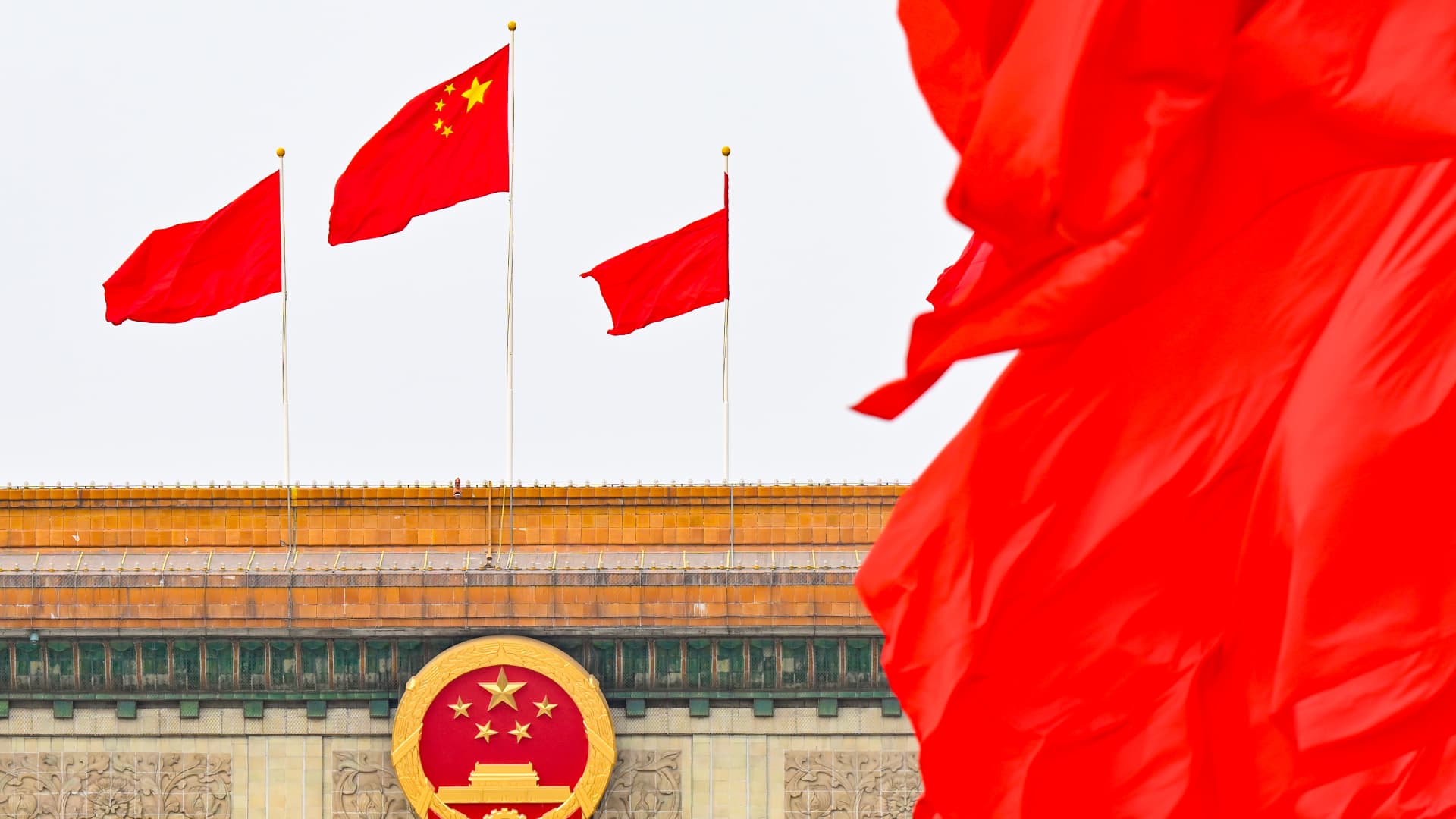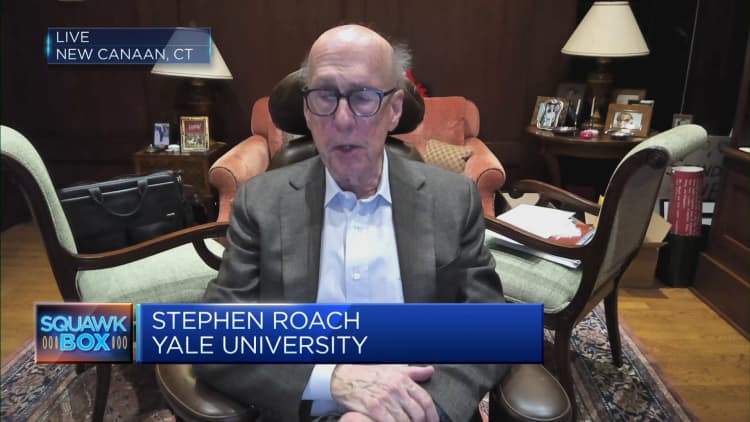
[ad_1]
BEIJING, CHINA – MARCH 04: Chinese national flags flutter at the Great Hall of the People as the second session of the 14th National Committee of the Chinese People’s Political Consultative Conference (CPPCC) opens on March 4, 2024 in Beijing, China. (Photo by VCG/VCG via Getty Images)
Vcg | Visual China Group | Getty Images
China did not hold its so-called “Third Plenum” meeting in the fall of 2023 and has not yet set a date for the highly anticipated plenary session.
That is a “pretty big deal”, according to Stephen Roach, senior fellow at Yale Law School â who says this may be a sign the country is struggling to find solutions to the challenges it is faced with.
Chinese President Xi Jinping has used the plenum meetings to announce a myriad of reforms to set the tone for his leadership, and while not all of those policies have been implemented, they were a statement about the country’s future, Roach told CNBC’s “Squawk Box Asia” on Monday.
“The failure to take advantage of that opportunity at a time like we have today in China, which is actually a much more serious set of challenges that China faces, I think, you know, indicates the fact that they may have run out of imaginative solutions to tough problems,” Roach said.

China is reeling from an array of issues, not least economically. Confounding expectations, the world’s second-largest economy has struggled to regain momentum after the coronavirus pandemic.
This includes the country’s property market, which has been in turmoil as construction projects are left incomplete and developers are struggling to make ends meet. Recent data has suggested an economic slowdown, which paired with persistent deflation and a sluggish stock market has left many market participants questioning whether to invest in China’s economy.
Other issues include China’s aging population and productivity, Roach said.
“China’s got an aging society and its got productivity issues and it needs more productivity growth to offset the loss of workers and how are they going to do it?”
“Xi Jinping has been talking about you know new models and new sources of production, but we need to see something more specific and the lack of a third plenum to give us that specificity I think is troublesome,” Roach said.
The Chinese Embassy in London did not immediately respond to CNBC’s request for comment.Â
What is China’s ‘Third Plenum’?
While Chinese authorities have announced some measures to bolster the country in recent months, including cuts to the benchmark five-year loan rate that mortgages are often pegged to, observers have said the measures are not far-reaching enough.
China’s “Third Plenum” meetings typically see senior party officials come together in the fall around a year after new leadership takes office, or current leaders are confirmed. A meeting would therefore have been expected to take place in the last quarter of 2023.
Plenum meetings have been a hallmark of China’s political system, with seven of them usually taking place during the five-year term of the ruling Central Committee, which is elected by the National Congress. Each meeting tends to cover a specific theme, with the third one typically focusing heavily on economic issues.
Observers often take clues about the potential path ahead for the government and what its priorities are from the plenum meetings. At times, statements released following the plenum meetings have been deemed as too vague, with a lack of concrete action plans.
On other occasions, however, they have been viewed as economic turning points, with policies targeting growth and expansion setting the scene for years to come. This has raised questions about the delay of the 2023 plenum amid the sluggish state of China’s economy.
China’s annual parliamentary meetings, which cover topics such as government policy plans and targets and are known as the “Two Sessions,” begin this week. Investors are paying close attention to any signals about economic stimulus that may come out of the meetings.
In a move that broke with traditional Chinese political procedure, Beijing on Monday announced that Premier Li Qiang would not be giving a press conference at this year’s parliamentary meeting. They would also not happen during the remainder of the congressional term â which is set to last three more years.
[ad_2]
Source link







